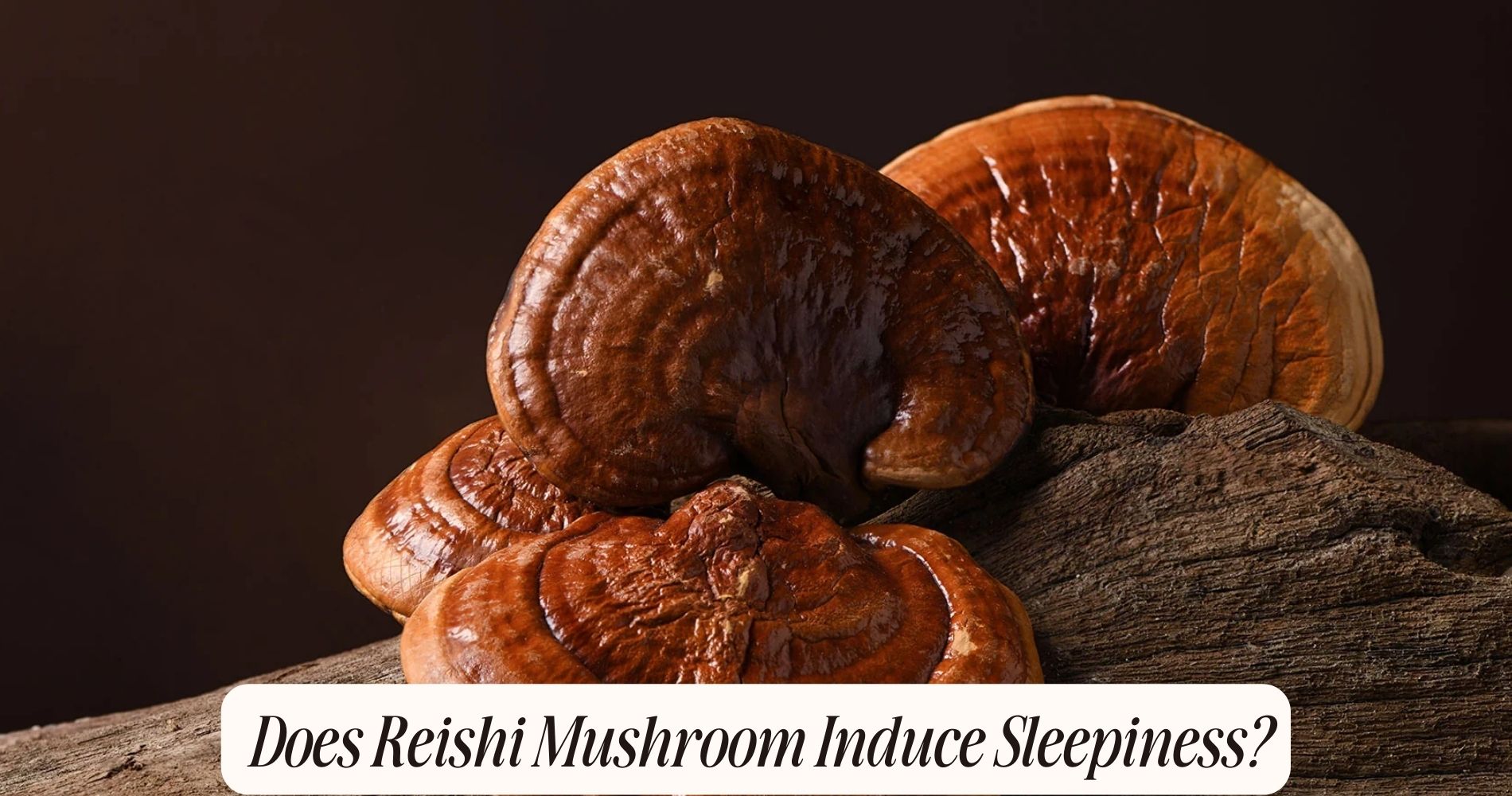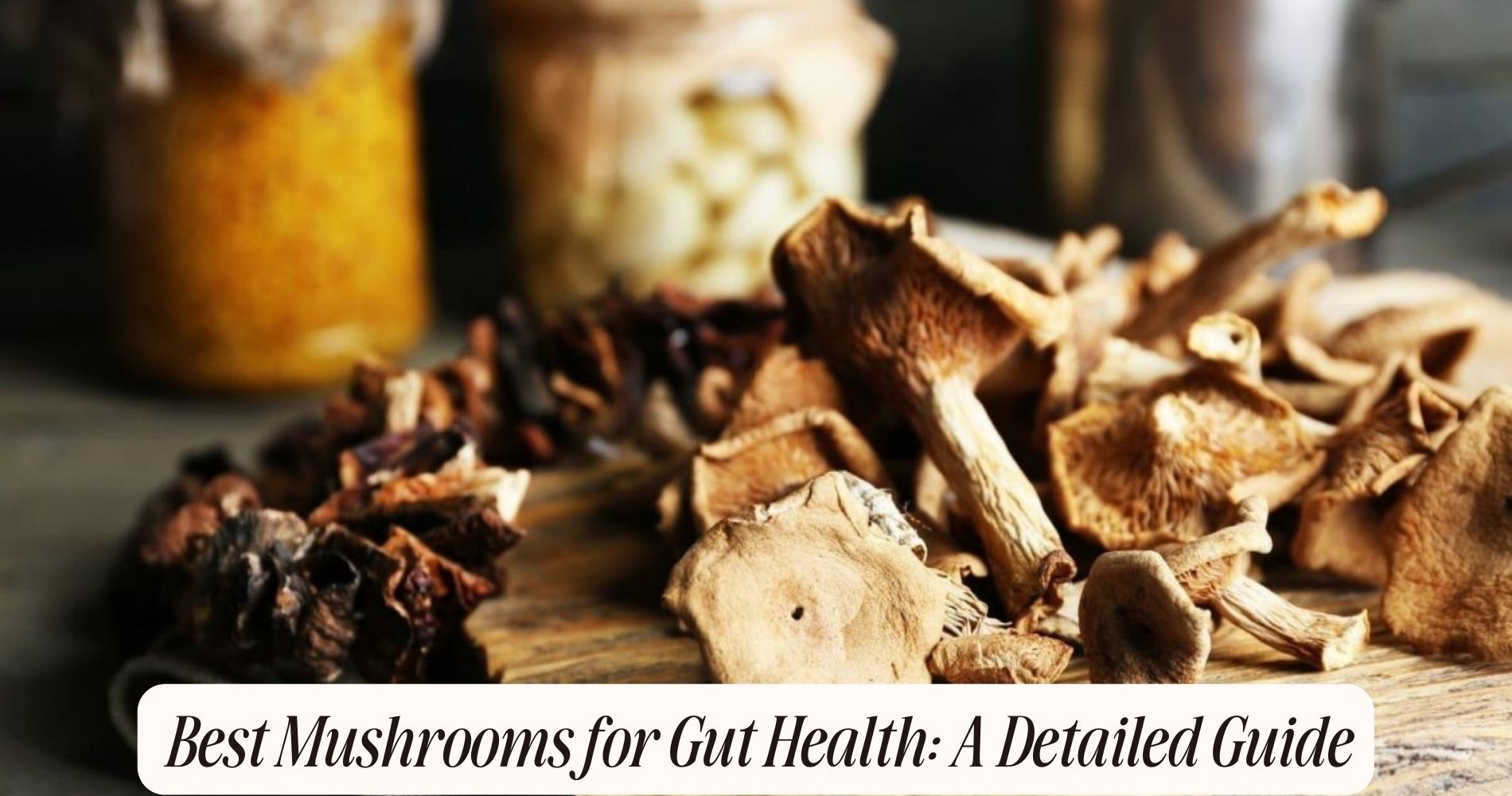
Does Reishi Mushroom Induce Sleepiness?
What exactly is Reishi Mushroom and what're its key characteristics that make it a unique and sought-after natural remedy?
Reishi Mushroom, scientifically known as Ganoderma lucidum, is a type of fungus that has been used for centuries in traditional medicine practices, particularly in Asian cultures. This unique mushroom is renowned for its various health benefits, including its potential to boost the immune system, reduce fatigue, and improve overall well-being.

In addition to its medicinal properties, Reishi Mushroom is also valued for its culinary uses. While its bitter taste may not appeal to all palates, it's often used in teas, soups, and other dishes for its potential health benefits. Some people also consume Reishi Mushroom in supplement form to reap its health-promoting effects.
Traditional Uses of Reishi Mushroom
Reishi Mushroom has a long history of being utilized in traditional medicine practices for its various health-promoting properties. Its traditional uses are deeply rooted in Asian cultures, where it holds significant medicinal benefits and cultural significance. In traditional Chinese medicine, Reishi Mushroom, also known as Lingzhi, is revered for its ability to support the immune system, reduce fatigue, and promote longevity. It has been historically used to address a wide range of health conditions, including boosting energy levels, improving heart health, and supporting liver function.
The cultural significance of Reishi Mushroom extends beyond its medicinal benefits. In ancient times, it was believed to bring good fortune, happiness, and prosperity to those who consumed it regularly. Reishi was often reserved for royalty and nobility due to its rare and precious nature. Its association with longevity and vitality earned it the title of the 'Mushroom of Immortality' in traditional folklore. Today, Reishi Mushroom continues to be highly valued for its comprehensive health benefits and remains an integral part of traditional medicine practices around the world.
Active Compounds in Reishi Mushroom
The medicinal properties of Reishi Mushroom are attributed to its rich array of active compounds, which play an essential role in promoting health and well-being. Among these active compounds, triterpenes such as ganoderic acids are key components that contribute to the mushroom's various biological effects. These triterpenes have been linked to potential sleep benefits, as they're believed to possess calming properties that may help promote relaxation and improve sleep quality.

Additionally, polysaccharides found in Reishi Mushroom are known for their immune-modulating effects, which can indirectly influence sleep by supporting overall health and well-being.
Furthermore, Reishi Mushroom contains antioxidants like ergothioneine and phenolic compounds, which help combat oxidative stress and inflammation in the body. By reducing inflammation, these compounds may contribute to better sleep quality, as inflammation has been linked to sleep disturbances. The synergistic effects of these active compounds in Reishi Mushroom highlight its potential to positively impact sleep and overall health when incorporated into one's wellness routine.
Research Studies on Reishi and Sleep
Several research studies have explored the relationship between Reishi Mushroom and sleep quality, shedding light on the potential benefits of this natural remedy for promoting restful sleep.
One study published in the Journal of Ethnopharmacology found that Reishi extract improved sleep patterns in rats, suggesting its potential as a natural sleep aid.
Another study in the International Journal of Molecular Sciences focused on the effects of Reishi on insomnia, indicating that the bioactive compounds present in Reishi may offer benefits in improving sleep quality.
Additionally, a systematic review published in the Nutritional Neuroscience journal highlighted the positive impact of Reishi on sleep-related factors, supporting its traditional use as a remedy for sleep disorders.
These findings collectively suggest that Reishi may have potential benefits in addressing insomnia and improving overall sleep quality, making it a promising natural alternative for those seeking non-pharmacological interventions for sleep disturbances.
Potential Impact on Sleep Quality
Exploring the potential impact of Reishi Mushroom on sleep quality reveals promising insights into its efficacy as a natural remedy for addressing insomnia and improving overall restful sleep patterns. Sleep patterns are intricately linked to the body's circadian rhythm, a physiological process that regulates the sleep-wake cycle. Studies suggest that Reishi Mushroom may influence sleep quality by promoting relaxation and reducing stress, factors that can markedly impact one's ability to fall asleep and stay asleep throughout the night. By enhancing relaxation, Reishi Mushroom may help individuals achieve deeper and more restorative sleep, leading to improved overall sleep patterns.

Furthermore, the bioactive compounds found in Reishi Mushroom have been associated with calming effects on the nervous system, which can contribute to a more tranquil state conducive to quality sleep. These calming properties may play a role in regulating circadian rhythms, ultimately supporting a healthy sleep-wake cycle. Incorporating Reishi Mushroom into your routine could potentially positively impact sleep quality by promoting relaxation and aligning with the body's natural sleep patterns.
How to Incorporate Reishi Into Your Routine
To effectively integrate Reishi into your daily routine, consider incorporating it into your evening wind-down ritual for best relaxation and potential sleep benefits. Reishi can be consumed as an herbal tea, making it a pleasant addition to your nighttime ritual. The calming properties of Reishi can help prepare your body and mind for a restful night's sleep. Adding Reishi to your bedtime routine may enhance its effectiveness as a sleep supplement.
Incorporating Reishi into your evening wind-down ritual is simple. Brew a cup of Reishi herbal tea about 30 minutes before bed. The warm beverage can be a soothing signal to your body that it's time to relax. By making this a consistent part of your bedtime routine, you may experience improved sleep quality over time. Remember to consult with a healthcare provider before introducing any new sleep supplements, including Reishi, especially if you have underlying health conditions or are taking medications.
Precautions and Considerations
When considering incorporating Reishi into your routine, it's important to be mindful of potential precautions and considerations. While Reishi mushrooms are generally considered safe for most people, there are a few key points to keep in mind.
To begin with, Reishi may have sedative effects, which could potentially induce sleepiness. It's advisable to monitor your response to Reishi consumption, especially if you plan to take it close to bedtime. This brings us to the significance of maintaining good sleep hygiene practices. If you notice that Reishi makes you drowsy, it might be beneficial to adjust your bedtime routine or habits accordingly.
Additionally, it's vital to be aware of any potential interactions Reishi may have with medications you're currently taking. Always consult with a healthcare professional before adding Reishi to your daily regimen, particularly if you have existing health conditions or are on medication. By being cautious and informed, you can incorporate Reishi into your routine safely and enjoy its potential benefits on sleep quality.
Explore the Benefits of 10-IN-1 Mushroom Gummies
Frequently Asked Questions
Can Reishi Mushroom Interact With Medications?
Reishi mushrooms can interact with medications, potentially causing drug interactions. It's important to be cautious about possible side effects. Consult a healthcare provider for advice on efficacy studies, dosage adjustments, and managing any risks.
Is Reishi Safe for Pregnant Women?
During pregnancy, hormonal changes may lead to sleep disturbances. It's important to consult your healthcare provider before using reishi mushroom. Limited research exists on its safety for pregnant women, underscoring the significance of caution.
Can Reishi Cause Allergic Reactions?
You should be aware of potential side effects of reishi, including allergic reactions. Consider allergy testing before use. It's important to prioritize safety when introducing new supplements, especially if you have a history of allergies.
What Is the Recommended Dosage of Reishi?
To determine the recommended dosage of reishi, consult your healthcare provider. They can advise based on factors like weight, health status, and desired outcomes. Be aware of potential side effects and consider ideal timing for consuming reishi.
Are There Any Contraindications for Reishi Use?
When considering contraindications for Reishi use, it is crucial to evaluate potential impacts on sleep quality and energy levels. Always consult with a healthcare provider to determine if Reishi is suitable based on your individual health profile.
Conclusion
To sum up, research studies suggest that reishi mushroom may have potential benefits for improving sleep quality.
The active compounds in reishi have been shown to have calming and stress-reducing effects, which could contribute to better sleep.
While more studies are needed to fully understand the impact of reishi on sleep, incorporating this mushroom into your routine may be worth considering for those looking to enhance their overall sleep health.




